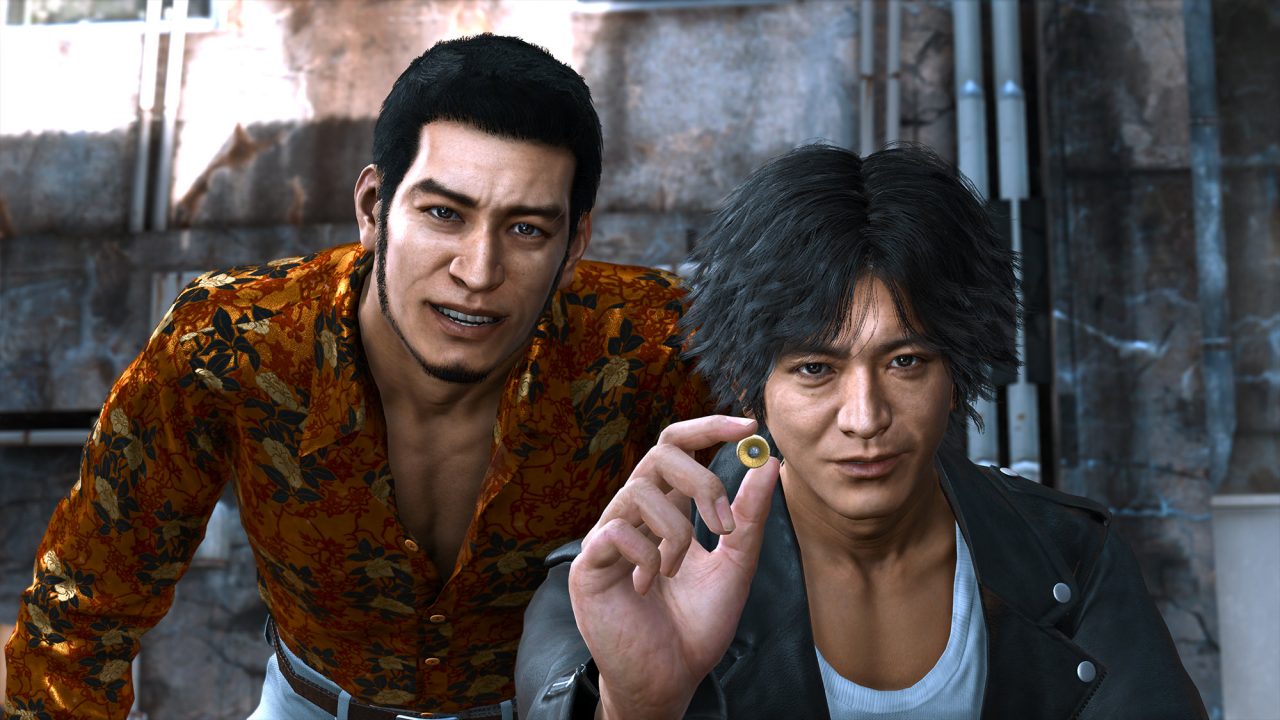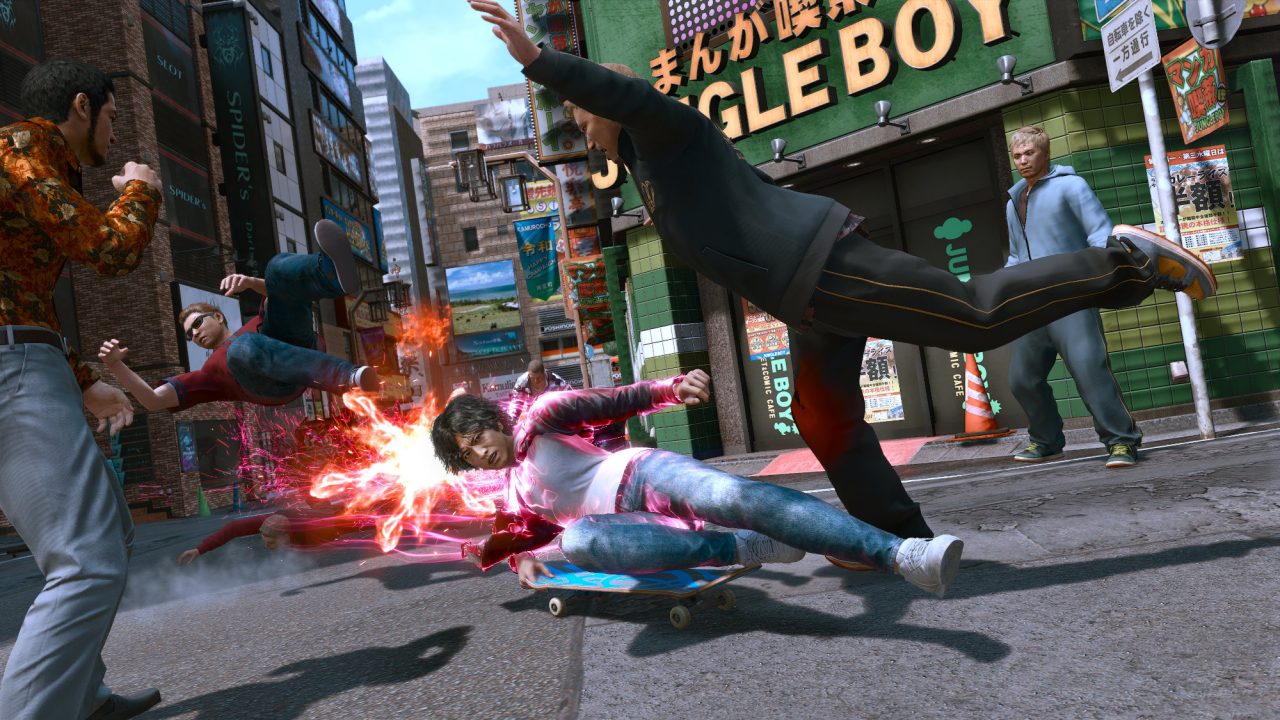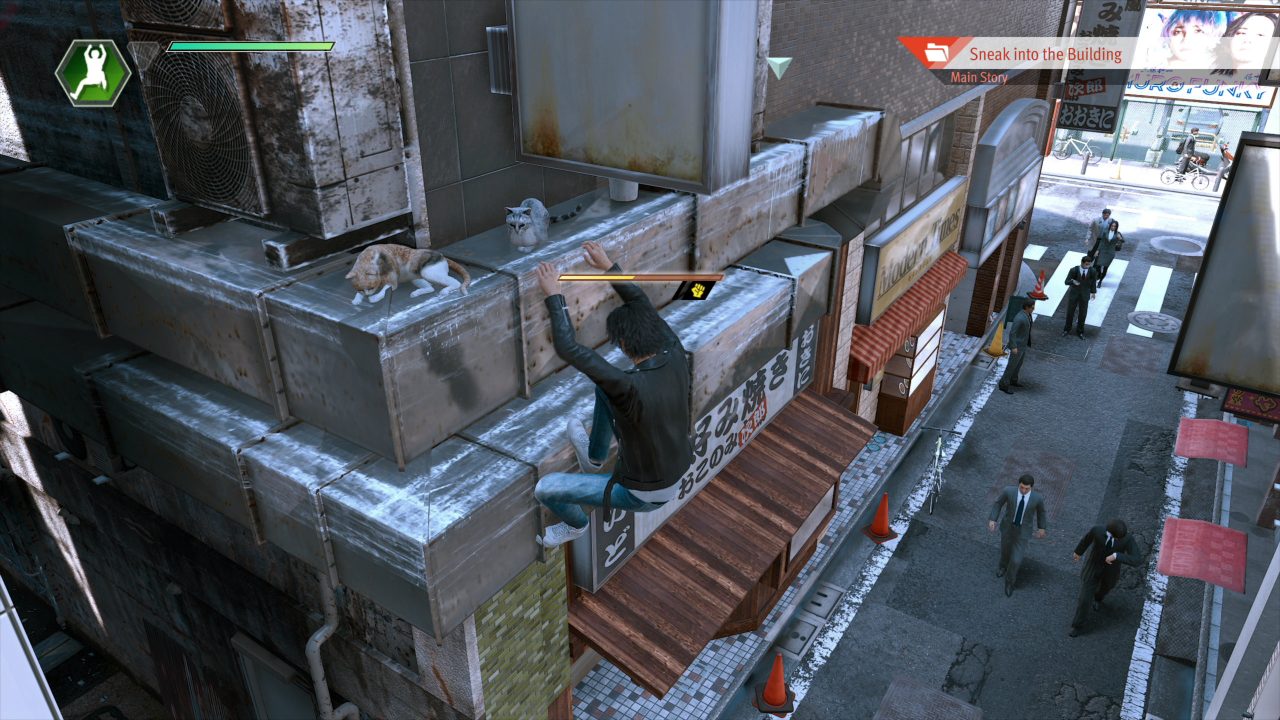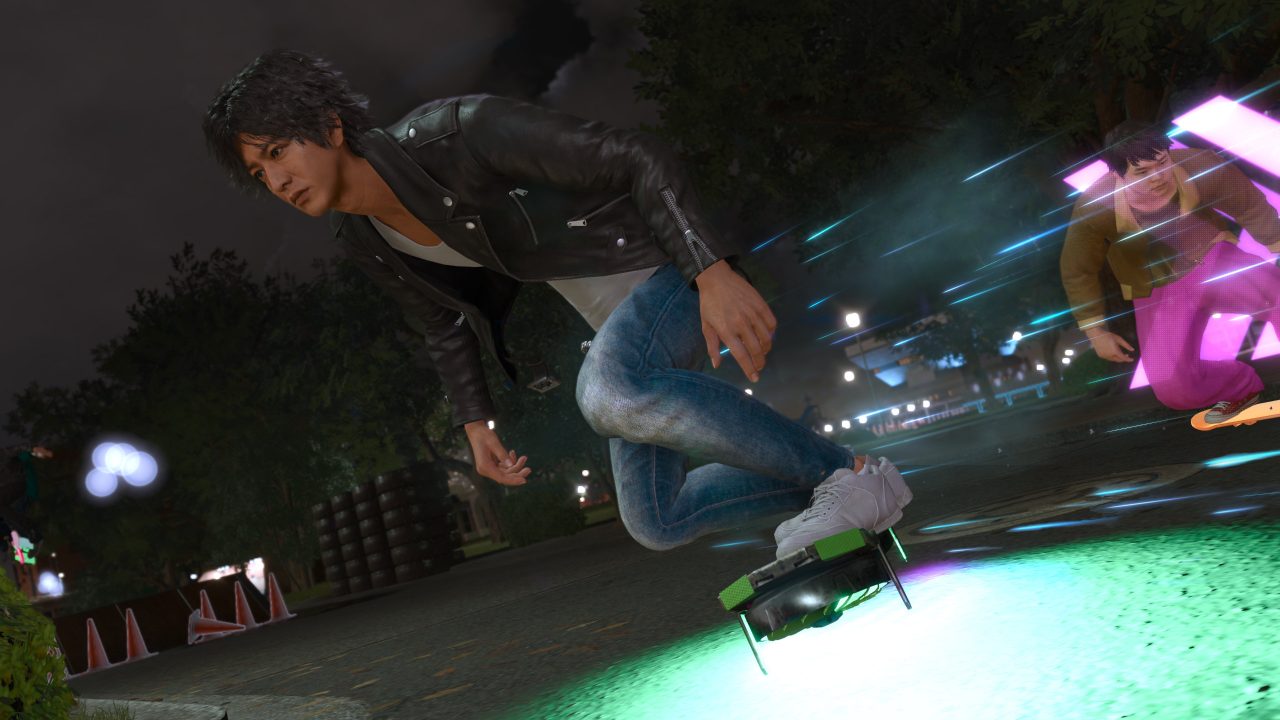The original Judgment had a huge impact on me. I had tried to get into the Yakuza series in the past but lost interest. When Judgment came out, offering an original cast and plot in that same world with a focus on detective work, I thought it was the perfect way for me to ease myself into the long-running franchise. I was right. I adored Judgment, and with that positive experience lifting me up, I dove back into the mainline series and chewed through several Yakuza games. I’m an enthusiastic fan of the series now, but Judgment and its core crew are special to me. So when Ryu Ga Gotoku Studio announced they were developing a sequel, titled Lost Judgment, I was about as close to being “over the moon” as a person can physically get without shooting themselves into space. But past the hype and excitement lies the real test for any sequel: does it match or surpass its predecessor?
The quick answer to that question is a resounding “Yes, it most certainly does.”
Lost Judgment’s story starts out as a typical day for Kamurocho detective Takayuki Yagami and his partner Masaharu Kaito. When two friends call and ask for help with a case they’ve picked up in Yokohama, Yagami and Kaito head to Ijincho, which players might remember well from last year’s Yakuza: Like a Dragon. Yagami and company are initially tasked with uncovering bullying at a private high school, but things quickly get serious when a dead body shows up in the city. In an interesting turn of events, a suspect is immediately apparent, but the real mystery is figuring out how and why they did it. The implications have shocking consequences for both the people involved and the legal system at large.
The setup may not initially appear as dark as the serial murders Yagami investigates in the first game, but the subject matter is just as serious, with plenty of twists to the narrative and conspiracies to unravel as you dig deeper to find the truth. School bullies and student suicides are a core part of this story, and having a backdrop like that — one that is very relevant to Japan today — creates a different but no less disturbing kind of somber atmosphere. The mystery isn’t quite as personal to Yagami as the Mole murders, but it’s every bit as emotional a story in the end.
That’s not to say that the narrative is perfect. There are occasional pacing problems, the game is a little too fond of repeating key discoveries, and a few plot points are a little difficult to accept at first. Like the first game, things get a little messy toward the end of the story, but Lost Judgment finishes strong with a highly satisfying resolution that left me hungry for more.

While he’s dealing with bullies and investigating a murder, Yagami becomes an outside counselor for a high school detective club and aids in their investigations. This is essentially a long-form side quest that sees Yagami infiltrate several school clubs to gain intel. Each club has a minigame you can play, such as rhythm games for the dance club or a territory-controlling robot battle in the robotics club. But these school stories are not just about fun diversions. There’s a surprisingly robust and long narrative for this side content. Along the way, Yagami gets to know the club members, helps them with their problems, and coaches them as they pursue their goals. There’s even a Persona-like personality system where you have to rank up leadership stats like teamwork and guts to progress stories or unlock new clubs to infiltrate. The whole thing is much more involved and fun than I expected, and I love the wholesomeness of Yagami being a mentor to troubled kids.
Of course, you have a whole city to explore (two of them actually, since you can go back to Kamurocho too), and as you might expect, there are a plethora of side cases and activities to partake in. The friend system from the first game is gone, but practically all of the minigames make a return. You even get access to a few new ones, like golfing and a Sega Master System in Yagami’s office (replacing the pinball machine from the first game). Side cases range from slightly weird but sweet to the kooky and zany variety frequently seen in Yakuza games. However, Lost Judgment introduces a new way to find them. You can still run into cases on the streets or take jobs from your office, but you also have the option to use the in-game Twitter equivalent, called Chatter, to find trending posts and determine where problems might be cropping up. My absolute favorite side activity, though, is walking Ranpo, the mystery-sniffing Shiba Inu. Yes, you can pet and walk the dog in Lost Judgment. Not only that, but he can find goodies for you and help out in combat too.

Speaking of fighting, the smooth and stylish brawler combat from the first game is back, and Yagami even has a new combat style to round out his returning Crane and Tiger styles. Snake is a defensive and deflection-based style that Yagami initially employs to deal with delinquent students, but it’s honestly a very satisfying style to use against all types of opponents, and it has some of the coolest EX moves. One of its defining features is that you can block attacks no matter what direction you’re facing (addressing an element of Yakuza combat that has long irked me), and if you block right before an attack, you can perform a parry and open your enemy up to a counterattack. Occasionally, an opponent may power up and perform a deadly attack — this is a powerful move with a large windup that will deal a lot of damage if it hits, but if you can dodge it just right, you can perform a mortal reversal, which turns the tables on them. Along with some new tools for each style that you can unlock by spending skill points, the combat feels really comfortable and just fun. I enjoyed Like a Dragon’s switch to turn-based combat, but Lost Judgment proves that RGG Studio were right to keep their beat-em-up roots alive in this spin-off series.
The weakest part of the original Judgment’s gameplay was probably the detective minigames you were inundated with, particularly the tailing missions that were pretty tedious and popped up way too frequently. Those hoping that these activities have been completely overhauled in Lost Judgment will be disappointed, as they largely remain the same. They have been tweaked to make them slightly less annoying, though, and the game is much better about balancing when they’re used so players don’t tire of them quite as quickly.

Lost Judgment also adds two new activities: parkour and stealth sequences. Before you get excited, they’re both pretty shallow experiences. Parkour has Yagami leaping from ledges, shimmying across pipes, and wall running to clear gaps, but everything feels stiff and scripted — a far cry from the fluidity and freedom of the combat system. Stealth amounts to nothing more than finding a hiding place and then throwing an object to distract an enemy before knocking them out cold. There are only two objects to choose from — a coin and a smoke bomb — and you can’t free aim when throwing; in other words, your choice of object also determines where you’re throwing it, which makes the whole thing feel more like stealth-lite than real stealth. It’s kind of disappointing, but then again, I suppose a dumbed-down experience is par for the course when it comes to the detective gameplay in the series.
Visually, Lost Judgment is just as strong of an entry as Like a Dragon, if not even a little bit stronger. This is hardly surprising, considering they both use the Dragon Engine and take place in the same major cities. Lip-synching is occasionally awkward in the motion capture cutscenes if you listen to the English dub, but this is a small price to pay for a worldwide release, and the scenes themselves are pretty to look at. There are some noticeable anti-aliasing issues that can be a little distracting, most notably the intense flickering of distant lights at nighttime; when it’s most pronounced, it can look like a throng of cameramen taking pictures a couple miles down the road or across the water. Hopefully, a future patch can help alleviate this, but it’s not a dealbreaker by any means. Performance-wise, the PS5 version of Lost Judgment is a smooth experience at the default resolution, and just like the PS5 version of Like a Dragon, I recommend sticking to it for the higher frame rate alone. In fact, you might say that 60FPS is even more crucial here due to the real-time brawler combat. And the skateboarding. That’s right, Yagami is a skater boy now.

Last but not least, let’s talk about the audio in Lost Judgment. The English voice acting in the first game is part of what endeared me to the characters, and it’s just as strong in the sequel. Almost all of the returning characters have the same voice actors, and in the case of the one notable exception, the switch isn’t jarring and quickly becomes natural. New characters give excellent performances too, and about the only thing I can fault the game on is that sometimes it’s hard to hear lines over the background music. To be fair, this has been a problem with the Yakuza series for a while now, and I would love for RGG Studio to add individualized audio controls in the options menu. In terms of music, there’s a lot of great new songs that I look forward to listening to with greater clarity once the soundtrack releases alongside the game. There’s even one piece that plays during the school stories that I could swear must be an intentional homage to Shoji Meguro, if not secretly composed by Meguro himself. I feel like the regular battle music isn’t quite as catchy as the tunes from the first game, but the boss music is excellent, particularly in the home stretch toward the ending.
When the original Judgment was announced in 2018, it seemed like an interesting side venture for RGG Studio, but a side venture nonetheless. A detective game set in the Yakuza universe? Maybe it would be good, but there was no way it would replace the mainline series, right? Fast forward to 2021, and while it’s clear that mainline Yakuza games aren’t going anywhere (even if they are mixing the formula up a bit), it’s also clear that the Judgment games can stand right up alongside them as equals. Lost Judgment proves that, not just because it’s a sequel, but because it’s a damn good game that feels like it contains all the elements that have made the Yakuza series great while maintaining its own identity. The detective gameplay still needs some work, and the plot stumbles a bit from time to time, but I have never been happier to dive back into this world, nor sadder to leave it once the game is finished.




